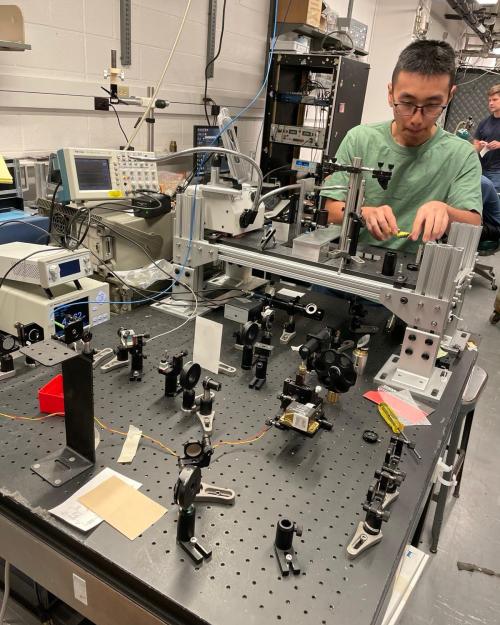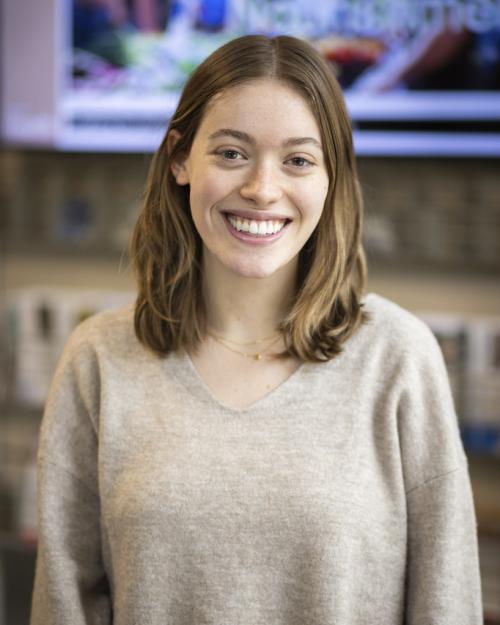Wynne Williams-Ceci ‘24 was alarmed when she saw many of her Cornell peers getting sick from vapes and not seeming to get the messages about the dangers of the practice.
So she’s using her classes and lessons from psychology, communications, information sciences, public policy and sociology to develop a senior project that measures whether social media influencers would be a better way to disseminate health information messaging out to young adults.
Williams-Ceci, a Robert S. Harrison College Scholar in the College of Arts & Sciences, chose the program because it allowed her to explore her diverse interests.
“It’s really focused when you take a certain major. It’s going to teach you one thing for a few career paths,” she said. “I started thinking I needed something interdisciplinary. Along with a love for research and liking to structure my own independent time and working with faculty, the College Scholar program seemed like a really good fit for me.”
College Scholars design their own interdisciplinary major, organized around a question or issue of interest, and pursue courses of study that cannot be found in an established major. They work closely with faculty and program advisers to choose their classes and design these independent senior projects. The program finishes with a capstone project, typically an honors thesis.
Williams-Ceci is designing and conducting a series of experiments investigating the efficacy of influencer marketing on health information and comparing it to “traditional” sources of health information, such as the FDA or WHO.
“It’s a randomized experiment where you're either placed into a condition where you're seeing a message in a simulated social media environment, or you're seeing a message that looks like an infographic straight from the FDA. My general hypothesis is that social media will be the more influential source of information about vaping.”
Williams-Ceci asserts that adolescents might be more willing to believe influencers because they are more relatable than a faceless government organization.
“When you're getting messaging from the FDA or the WHO, it’s either coming from an old man like Dr. Fauci or it's coming from just a nameless organization. With no person behind it, it'll just be an infographic or a journal article. What I'm hoping to play into is the idea that psychologically people will want to trust people who are like them.”
Williams-Ceci said she’s always been interested in public health; however, the impetus for her project came after arriving at Cornell.
“I didn't realize how much of a pressing issue vapes were until I came here. I saw people sometimes getting sick from them,” she said. “So I would say that was the moment when I decided instead of pursuing other health issues like heavy alcohol consumption, I really wanted to go to the root of vaping.”
Of course, there are ethical questions regarding using influencers, but Williams-Ceci believes that the government has already been doing so.
“The fact that the White House and government agencies already bring in celebrities to speak on topics such as these shows that they're moving in this direction. It certainly raises ethical concerns once the government privately contracts influencers to say certain things; however, I don't think it's too different from what the government already does with larger corporations and agencies,” she said.
Jonathan Mong ‘25 is a communications assistant in the College of Arts & Sciences.




